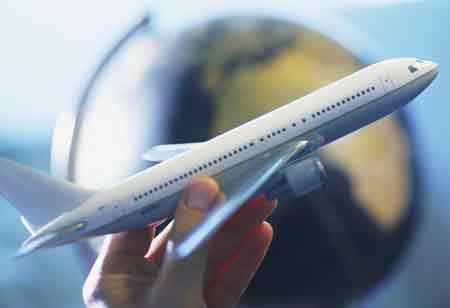THANK YOU FOR SUBSCRIBING
5 Technology Reforms in the Aviation Sector
The use of new age technologies in the aviation industry will help to improve multichannel communications, providing an easier risk free experience, security, and ease of use to the customers.

By
Apac CIOOutlook | Monday, January 27, 2020
Stay ahead of the industry with exclusive feature stories on the top companies, expert insights and the latest news delivered straight to your inbox. Subscribe today.
The use of new age technologies in the aviation industry will help to improve multichannel communications, providing an easier risk free experience, security, and ease of use to the customers.
FREMONT, CA: Aviation industry has gone through significant changes over the past few years. The implementation of new age technologies such as big data, biometrics, virtual reality, and blockchain has taken the industry to newer heights.
Below are some of the few technologies that have changed the aviation industry top to toe:
Identity Management:
The use of biometrics has brought a revolutionary change in the aviation industry, especially in the context of the ever increasing security apprehensions, by providing high security to the travelers. It also helps in the management of passengers and crew identification.
Baggage Tracking:
Blockchain, private or semi-private has become the one stop solution for the passengers and agents in handling and tracking baggage transfers and responsibilities.
Virtual Reality:
VR simulations enable pilots to train across a wider variety of aircrafts, including those that are still at the nascent stage of manufacturing. Through VR and mixed reality scenarios, pilots can access a wider variety of cockpits and simulate different weather conditions and stress tests without risk or heavy expense.
Cybersecurity:
The use of better cybersecurity measures is important in the aviation industry to protect customer data, company IP, and to lower fraud risks. This also helps in reviewing the operations and the ebbs and flows in the businesses of the industry.
Cloud Data:
Taking advantage of this technology, booking tickets is just a tap away on mobiles, benefiting the customers with a smoother and less complicated trip. Also, cloud data sharing would mean safer and better air traffic control and communication between towers. It increases performance and productivity in operations by monitoring staffing and scheduling and fuel costs logistics, providing services to customers according to the data collected.
The introduction to biometrics, blockchain, virtual reality has helped the aviation industry immensely in reaching greater heights. Effortless booking, updates on flight schedules and offers, and the safety over data privacy provide an easier experience for the customers, benefiting them from the wide array of solutions available. The industry should also consider the satisfaction of the customer as their prior concern.
See Also: Top Aerospace Tech Solution Companies





